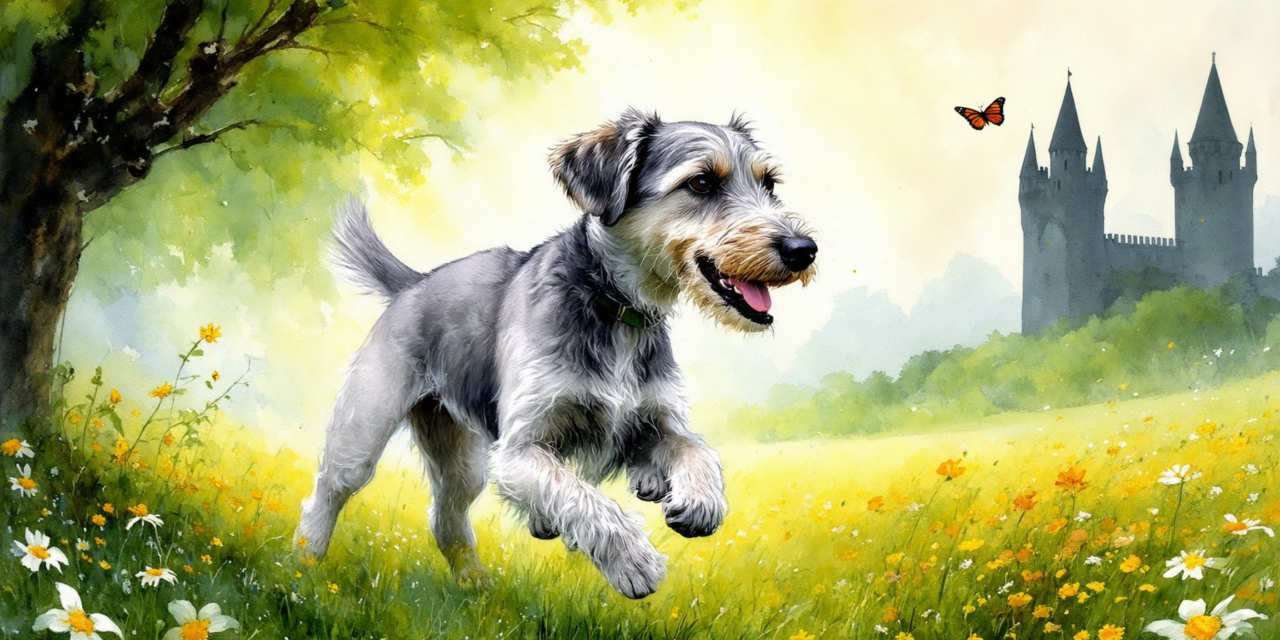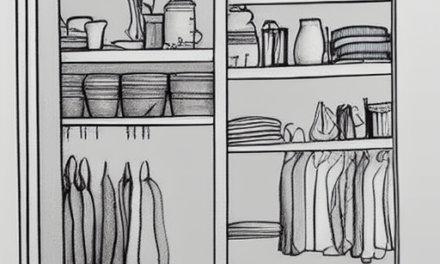Key Takeaways
- Cost Considerations: Expect to spend between $1,500 and $3,000 for an Irish Wolfhound puppy from a reputable breeder, factoring in additional expenses like vaccinations and ongoing care.
- Gentle Giants: Irish Wolfhounds are known for their calm and friendly temperament, making them great companions for families, especially those with children.
- Space and Exercise Needs: These large dogs require ample space and regular exercise to maintain their health, making them unsuitable for small apartments.
- Health Awareness: Be mindful of common health issues like hip dysplasia and heart conditions; regular veterinary check-ups are essential for longevity.
- Short Lifespan: With a lifespan of 6 to 8 years, potential owners should be prepared for the emotional commitment of caring for a large breed.
- Finding the Right Puppy: Utilize resources such as the American Kennel Club and adoption platforms like Petfinder to locate healthy Irish Wolfhound puppies.
Welcome to our comprehensive guide on Irish Wolfhound puppies, where we delve into everything you need to know about these majestic dogs. From understanding the cost of Irish Wolfhound puppies to exploring their lifespan and adoption insights, this article is designed to equip potential owners with valuable information. We will discuss the temperament and behavior of Irish Wolfhounds, assess their suitability as pets for families and individuals, and highlight the common challenges associated with owning these gentle giants. Additionally, we will compare the size of Irish Wolfhounds with Great Danes and provide resources for finding Irish Wolfhound puppies for sale or adoption. Whether you are considering bringing an Irish Wolfhound into your home or simply want to learn more about this breed, our guide will serve as your go-to resource for all things related to Irish Wolfhound puppies.
How much does an Irish Wolfhound puppy cost?
Understanding the Cost of Irish Wolfhound Puppies
The cost of an Irish Wolfhound puppy can significantly vary based on several key factors, including the breeder’s reputation, the puppy’s lineage, and the geographical location of the purchase. On average, prospective owners should anticipate spending between $1,500 and $3,000 for a puppy from a reputable breeder.
1. **Breeder Reputation**: Established breeders who prioritize health testing and responsible breeding practices may charge higher prices. It’s essential to choose a breeder who is a member of recognized breed clubs, such as the Irish Wolfhound Club of America, which ensures adherence to ethical breeding standards.
2. **Lineage**: Puppies from champion bloodlines or those with a pedigree of show-winning ancestors often come at a premium. This is due to the potential for superior traits and health, which can be important for those looking to show their dogs.
3. **Geographical Location**: Prices can also fluctuate based on where you live. In urban areas or regions with a higher demand for this breed, costs may be elevated compared to rural areas.
4. **Additional Costs**: Beyond the initial purchase price, potential owners should consider additional expenses such as vaccinations, microchipping, spaying/neutering, and ongoing care, which can add up to several thousand dollars in the first year alone.
5. **Health Considerations**: Investing in a puppy from a responsible breeder can lead to fewer health issues, which is crucial given that Irish Wolfhounds are prone to certain genetic conditions. Research indicates that responsible breeding can significantly reduce the risk of these health problems (American Kennel Club).
In conclusion, while the initial cost of an Irish Wolfhound puppy can be substantial, it is vital to consider the long-term commitment and expenses associated with owning this majestic breed. For more detailed guidance on selecting a reputable breeder and understanding the responsibilities of dog ownership, resources like the American Kennel Club and breed-specific organizations can provide valuable insights.
Factors Influencing the Price of Irish Wolfhound Puppies
Several factors can influence the price of Irish Wolfhound puppies, making it essential for potential owners to understand what contributes to the overall cost.
1. **Breeder Practices**: The practices of the breeder play a crucial role in determining the price. Reputable breeders who conduct health screenings and genetic testing for their breeding stock typically charge more. This investment in health ensures that the puppies are less likely to inherit common breed-specific health issues.
2. **Location and Demand**: The geographical location can greatly affect the price of Irish Wolfhound puppies. In areas where the breed is highly sought after, prices may be higher due to demand. Conversely, in regions where fewer people are interested in this breed, prices may be more competitive.
3. **Puppy Registration**: Puppies that come with registration papers from recognized organizations, such as the American Kennel Club, may also command higher prices. Registration not only provides proof of lineage but also assures potential owners of the puppy’s pedigree and breeding quality.
4. **Market Trends**: The overall market trends for dog breeds can fluctuate, impacting prices. For instance, if Irish Wolfhounds become more popular due to media exposure or celebrity ownership, prices may rise accordingly.
Understanding these factors can help prospective owners make informed decisions when considering the purchase of an Irish Wolfhound puppy. For those looking to explore options, checking listings for Irish Wolfhound puppies for sale can provide insights into current pricing trends.

Is an Irish Wolfhound a Good Pet?
Irish Wolfhounds are often referred to as “gentle giants,” making them potentially excellent pets for the right families. However, their suitability as pets depends on various factors, including lifestyle, living space, and the owner’s ability to meet their needs. Here are some key considerations:
- Temperament: Irish Wolfhounds are known for their calm and friendly demeanor. They are typically good with children and can be very affectionate. Their gentle nature makes them great companions, but they can also be reserved around strangers.
- Size and Space Requirements: As one of the tallest dog breeds, Irish Wolfhounds require ample space to move around comfortably. A large home with a secure yard is ideal. Their size can be intimidating, so they may not be suitable for small apartments or homes without adequate outdoor space.
- Exercise Needs: Despite their laid-back appearance, Irish Wolfhounds need regular exercise to maintain their health. Daily walks and opportunities to run in a safe area are essential. Lack of exercise can lead to behavioral issues and health problems.
- Health Considerations: Like many large breeds, Irish Wolfhounds are prone to certain health issues, including hip dysplasia and heart conditions. Regular veterinary check-ups and a balanced diet are crucial for their well-being.
- Training and Socialization: Early training and socialization are important for Irish Wolfhounds. They respond well to positive reinforcement techniques. Engaging them in obedience classes can help them develop good manners and strengthen the bond with their owners.
- Lifespan and Commitment: The average lifespan of an Irish Wolfhound is around 6 to 8 years. Prospective owners should be prepared for the emotional and financial commitment involved in caring for a large breed dog.
In conclusion, while Irish Wolfhounds can make wonderful pets, they require specific living conditions and a dedicated owner who can provide the necessary exercise, training, and health care. For those who can meet these needs, they offer loyalty and companionship that is hard to match. For more detailed insights on pet ownership and health, resources such as the American Kennel Club and veterinary associations can provide valuable information.
Suitability of Irish Wolfhounds for Families and Individuals
When considering an Irish Wolfhound as a pet, it’s essential to evaluate their suitability for your family or lifestyle. Here are some factors to keep in mind:
- Family Dynamics: Irish Wolfhounds are known to be gentle and affectionate, making them great companions for families with children. Their calm demeanor allows them to coexist peacefully with kids, provided they are properly socialized.
- Living Environment: These dogs thrive in homes with ample space. If you live in a small apartment, it may be challenging to provide the necessary room for an Irish Wolfhound to move comfortably. A house with a large yard is ideal.
- Activity Level: While they enjoy lounging around, Irish Wolfhounds require regular exercise. Families who lead an active lifestyle and can commit to daily walks and playtime will find these dogs to be excellent companions.
- Commitment to Care: Owning an Irish Wolfhound involves a commitment to their health and well-being. Regular veterinary visits, a nutritious diet, and attention to their exercise needs are crucial.
For those considering adopting an Irish Wolfhound, resources such as Petfinder and Rescue Groups can provide valuable information on available dogs and adoption processes.
What are the downsides of Irish Wolfhounds?
Irish Wolfhounds are majestic and gentle giants, but they come with several downsides that potential owners should consider. Here are the key health issues and challenges associated with this breed:
Common Challenges of Owning an Irish Wolfhound
- Heart Problems: Irish Wolfhounds are predisposed to various heart conditions, particularly dilated cardiomyopathy. This genetic disorder affects the heart muscle, leading to arrhythmias and potentially congestive heart failure. Regular veterinary check-ups and screenings are crucial for early detection (American Kennel Club).
- Bone and Joint Issues: Due to their large size, Irish Wolfhounds are susceptible to orthopedic problems such as hip dysplasia and osteosarcoma. These conditions can lead to chronic pain and mobility issues, making it essential to maintain a healthy weight and provide appropriate exercise (Veterinary Clinics of North America).
- Short Lifespan: The average lifespan of an Irish Wolfhound is around 6 to 8 years, which is shorter than many other breeds. This can be emotionally challenging for owners, as they may face the loss of their beloved pet sooner than expected (PetMD).
- Grooming Needs: While their coat is relatively low-maintenance, Irish Wolfhounds do require regular grooming to manage shedding and prevent matting. This can be time-consuming for some owners (The Spruce Pets).
- Space Requirements: Given their size, Irish Wolfhounds need ample space to move around comfortably. They are not ideal for apartment living and thrive in homes with large yards where they can run and play (DogTime).
- Temperament Considerations: While generally gentle, Irish Wolfhounds can be reserved with strangers and may require socialization to prevent shyness or aggression. Training and socialization from an early age are vital for a well-adjusted dog (American Kennel Club).
Health Issues Associated with Irish Wolfhounds
In addition to the common challenges, Irish Wolfhounds face specific health issues that potential owners should be aware of:
- Genetic Disorders: Apart from heart problems, Irish Wolfhounds are also prone to certain genetic disorders that can affect their quality of life. Regular health screenings and responsible breeding practices can help mitigate these risks.
- Dietary Needs: Due to their size, Irish Wolfhounds require a balanced diet to maintain their health. Overfeeding can lead to obesity, which exacerbates joint and heart issues. Consulting with a veterinarian for dietary recommendations is essential.
- Regular Veterinary Care: Routine veterinary visits are crucial for early detection of potential health issues. This includes vaccinations, dental care, and monitoring for any signs of illness.
In conclusion, while Irish Wolfhounds are known for their loyalty and gentle nature, prospective owners should be aware of these potential downsides. Understanding these challenges can help ensure a fulfilling relationship with this noble breed. For those considering bringing an Irish Wolfhound into their home, exploring Irish Wolfhound puppies for sale and Irish Wolfhound adoption options can be beneficial.
What is the lifespan of an Irish Wolfhound?
The lifespan of an Irish Wolfhound typically ranges from 6 to 8 years, which is relatively short compared to many other dog breeds. This breed is known for its impressive size, often weighing at least 105 pounds and standing a minimum of 30 inches tall at the shoulder. Understanding the lifespan of Irish Wolfhounds is crucial for potential owners, as it helps set realistic expectations for care and companionship.
Average Lifespan of Irish Wolfhounds
Several factors can influence the lifespan of Irish Wolfhounds, including genetics, diet, and overall health care. Regular veterinary check-ups and a balanced diet rich in nutrients can help mitigate some health issues common in large breeds, such as heart disease and bone problems. Recent studies indicate that maintaining a healthy weight and providing regular exercise can significantly enhance the quality of life and longevity for these dogs. According to the American Kennel Club, responsible breeding practices can also lead to healthier puppies, which may contribute to a longer lifespan.
Factors Affecting the Lifespan of Irish Wolfhounds
When considering the lifespan of Irish Wolfhounds, several key factors come into play:
- Genetics: The genetic background of the puppy can significantly impact its health and longevity. Choosing a reputable Irish Wolfhound breeder who conducts health screenings can help ensure a healthier dog.
- Diet: A balanced diet tailored to the needs of large breeds is essential. High-quality dog food that meets nutritional standards can prevent obesity and related health issues.
- Exercise: Regular physical activity is vital for maintaining a healthy weight and preventing joint problems. Daily walks and playtime can enhance both physical and mental well-being.
- Veterinary Care: Routine veterinary visits for vaccinations and health check-ups can catch potential issues early, contributing to a longer, healthier life.
For more detailed information on the health and care of Irish Wolfhounds, you can refer to resources like the American Kennel Club and veterinary health articles from Petfinder.

Why Not to Get an Irish Wolfhound?
While Irish Wolfhounds are known for their gentle nature and loyalty, there are several compelling reasons to reconsider bringing one into your home. Understanding these factors can help you make an informed decision about whether this breed is the right fit for your lifestyle.
Considerations Before Adopting an Irish Wolfhound
Before committing to an Irish Wolfhound, it’s essential to evaluate your living situation and lifestyle. Here are some key considerations:
- Health Concerns: Irish Wolfhounds are susceptible to various health issues, including:
- Hip Dysplasia: A genetic condition that can lead to arthritis and mobility issues. Regular veterinary check-ups and maintaining a healthy weight can help manage this risk (American Kennel Club).
- Bloat: This life-threatening condition occurs when the stomach fills with gas and twists. It’s crucial to monitor feeding practices, such as avoiding vigorous exercise after meals (Veterinary Partner).
- Heart Disease: Large breeds like the Irish Wolfhound are at a higher risk for dilated cardiomyopathy. Regular heart screenings are recommended for early detection (Veterinary Clinics of North America).
- Space Requirements: Due to their size, Irish Wolfhounds require ample living space. They thrive in homes with large yards where they can roam freely. Small apartments or homes with limited outdoor access may not provide the environment they need to flourish.
- Exercise Needs: These dogs require significant daily exercise to maintain their physical and mental health. A lack of adequate exercise can lead to behavioral issues and obesity. Owners must commit to long walks and playtime, which may not suit everyone’s lifestyle.
- Grooming and Maintenance: While their coat is relatively low-maintenance, regular brushing is necessary to minimize shedding and maintain skin health. Additionally, their size can make grooming more challenging and time-consuming.
- Lifespan Considerations: Irish Wolfhounds have a shorter lifespan compared to smaller breeds, typically living around 6 to 8 years. This can be emotionally challenging for owners, as the bond formed with these gentle giants is profound.
Alternatives to Irish Wolfhounds for Potential Owners
If after considering the above factors you feel an Irish Wolfhound may not be the best fit, there are several alternatives to explore. Other large breeds may offer similar companionship without some of the challenges associated with Irish Wolfhounds. Consider breeds like:
- Great Danes: Known for their friendly demeanor and adaptability, Great Danes can be a great alternative for those seeking a large dog.
- Newfoundlands: These gentle giants are known for their calm nature and are excellent with families.
- Bernese Mountain Dogs: With their affectionate temperament, Bernese Mountain Dogs can be a wonderful choice for families looking for a large, loving companion.
Ultimately, ensuring that you can meet the needs of any breed is essential for a harmonious relationship. For those seeking guidance on pet ownership and lifestyle adjustments, consulting with a wellness coach may provide valuable insights into integrating a large breed dog into your life effectively.
Which dog is bigger Great Dane or Irish Wolfhound?
When comparing the sizes of the Great Dane and the Irish Wolfhound, it’s important to note that both breeds are among the largest in the canine world, but the Irish Wolfhound typically holds the title for being slightly larger.
Size Comparison: Irish Wolfhound vs. Great Dane
- Irish Wolfhound: Males stand between 32 to 34 inches tall at the shoulder and can weigh between 140 to 180 pounds. Females are slightly smaller, ranging from 30 to 32 inches in height and weighing 115 to 140 pounds.
- Great Dane: Males generally measure 30 to 34 inches tall and weigh between 140 to 175 pounds, while females are about 28 to 32 inches tall and weigh 110 to 145 pounds.
Understanding the Physical Characteristics of Irish Wolfhounds
The Irish Wolfhound has a longer, rougher coat, which can vary in color, including gray, brindle, red, and fawn. Grooming needs are minimal, requiring only occasional brushing. In contrast, Great Danes have a short, smooth coat that comes in various colors, including fawn, brindle, blue, and black, and they also require minimal grooming.
Both breeds are prone to certain health issues, including joint problems, heart disease, and bloat. Regular veterinary check-ups and a balanced diet are essential for maintaining their health. Due to their size, both breeds require ample space to move around and exercise, making daily walks and playtime crucial for their physical and mental well-being.
While both the Great Dane and the Irish Wolfhound are impressive in size and stature, the Irish Wolfhound is generally recognized as the larger of the two breeds. Potential owners should consider their living situation and ability to provide adequate care for these giant dogs. For more detailed information on caring for large dog breeds, including health and wellness tips, resources like the American Kennel Club (AKC) can provide valuable insights.
Irish Wolfhound Puppies for Sale and Adoption
Finding the right Irish Wolfhound puppy can be an exciting yet challenging journey. With their gentle demeanor and majestic stature, Irish Wolfhounds are a popular choice for many dog lovers. However, it’s essential to approach the process with care to ensure you find a healthy and well-bred puppy.
Finding Irish Wolfhound Puppies Near Me
When searching for Irish Wolfhound puppies for sale, consider starting with local breeders who specialize in this breed. Reputable Irish Wolfhound breeders can provide you with valuable information about the puppy’s lineage, health, and temperament. Websites like the American Kennel Club can help you find certified breeders in your area.
Additionally, you can explore platforms like Petfinder and Adopt a Pet to locate Irish Wolfhound puppies available for adoption. These sites often list dogs from various rescues and shelters, giving you the chance to provide a loving home to a puppy in need.
Resources for Irish Wolfhound Adoption and Rescue
If you’re considering adopting an Irish Wolfhound, there are several resources available to assist you. Organizations such as Rescue Groups and local breed-specific rescues focus on rehoming Irish Wolfhounds. These groups often have Irish Wolfhound rescues that can connect you with adoptable dogs, ensuring you find a companion that fits your lifestyle.
Before adopting, it’s crucial to understand the responsibilities involved in caring for an Irish Wolfhound. Their size and unique needs require a commitment to training, socialization, and regular veterinary care. By utilizing these resources, you can make an informed decision and find the perfect Irish Wolfhound for your home.













